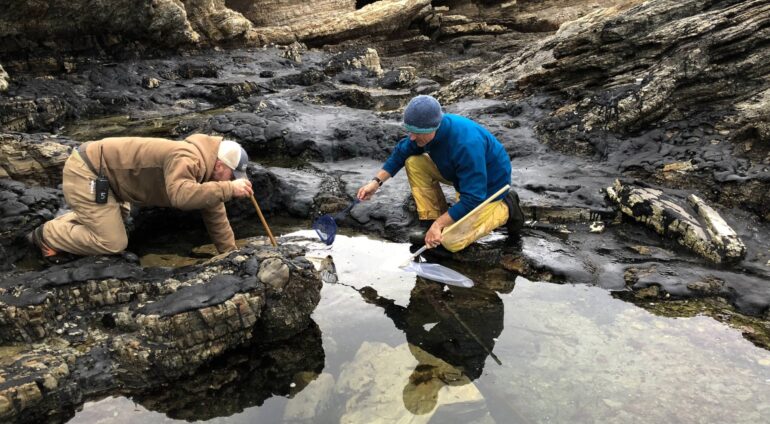In 2015, the United Nations proposed a universal call to action to end poverty, protect the planet and improve the lives and prospects of everyone, everywhere by 2030. Seventeen goals were adopted by all UN Member States as part of the 2030 Agenda for Sustainable Development. Although progress is being made, with less than a decade to go, many conservation advocates are alarmed at how slowly the goals are being met. This month, Better recognizes 10 top eco-warriors, individuals or groups — nominated by readers and fellow environmentalists — who who are leading the charge to save the planet through their extraordinary efforts to address the climate crisis and promote sustainability.
Harry and Beth Drucker
Conservation Advocates
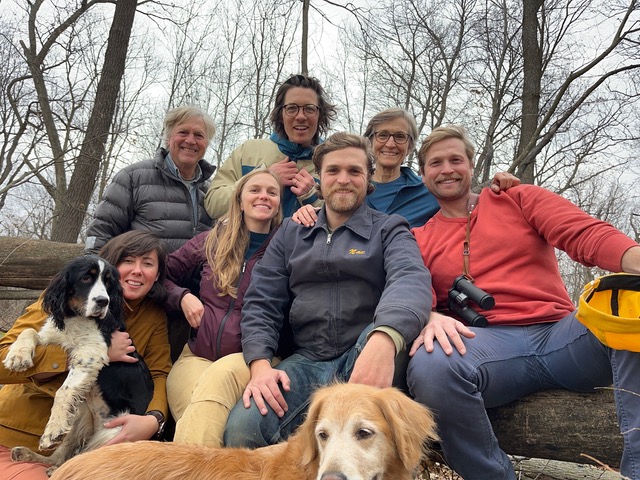
Harry and Beth Drucker are vocal advocates for sustainability. Harry, Managing General Partner, North Shore Realty Partners, is secretary at The Windward Fund, a public charity that incubates and hosts initiatives in pursuit of bold solutions to environmental challenges. He also serves as a director at The New Venture Fund, as a trustee of the Nature Conservancy of Illinois and as a director of the Environmental Law and Policy Center. He and Beth share the titles of Co-Managing Directors of Driftless Valley Farm, the family farm where they practice regenerative farming and achieved an organic certification in 2021.
Beth is one of the Founders and the President of the Board of Directors of GoGreenWilmette and the founder of GoGreenIllinois, an organization she co-facilitates with Co-Founder Kim Stone.
The Drucker’s three children, Will, Emma and Nathaniel all work in environmental fields. Will founded a sustainable spirits company called Split Spirits. Emma is working with the Idaho chapter of the Nature Conservancy and Nathaniel works with alternative forms of energy including solar, wind and sustainable battery power. “This is our family ethic, part of our moral compass,” Beth explains.
Driftless Valley Farm is in northwest Illinois, but the Druckers reside in Wilmette and admit that it’s difficult to live a sustainable lifestyle in the suburbs. “We have a house. We have 2 cars. We heat with fossil fuels,” Beth notes. “There are plenty of things we do that are not sustainable, but there’s a lot we have incorporated that tries to reduce our impact on the planet.”
That includes installing solar panels on their home more than 20 years ago. “We wanted to put these things up to have conversations with people,” Harry Drucker said in an article published by the Wilmette Beacon.
Beth founded GoGreen with the idea of activating the community. There are now 33 communities involved. “Environmental issues truly are the most important thing,” she says. “If we don’t solve some of these incredibly difficult problems, nothing else is going to matter. We won’t have a planet that’s livable.”
Jamie Beck Alexander
Director, Drawdown Labs at Project Drawdown
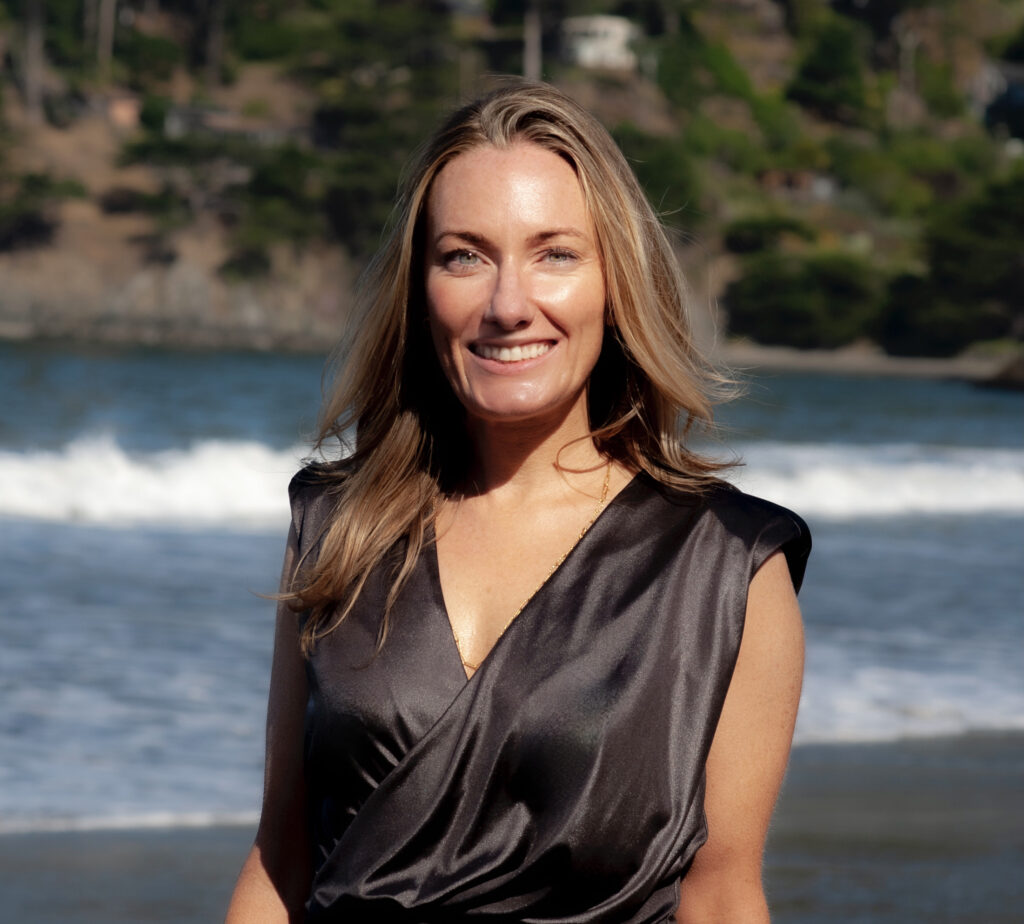
Jamie Beck Alexander was working for the U.S. government in Bangladesh addressing malaria when she saw firsthand the impact of climate change. “It was impossible to ignore,” she explains. “No matter how much I cared about malaria, no effort on that issue would be sustainable unless and until we addressed climate change.”
Although when she entered the workforce Alexander was passionate about public health, she decided to pivot and pursue a career in the climate space. First at Ceres, a nonprofit organization working with the most influential capital market leaders to solve the world’s greatest sustainability challenges and now as the founding director of Drawdown Labs at Project Drawdown, Alexander is committed to speeding up the scaling of climate solutions quickly, safely and equitably.
“We’re not just focused on the doom and gloom,“ she says, “Drawdown Labs works with businesses, with investors, and with top policy makers to help accelerate the deployment of climate solutions. We’ve been really successful in calling out the lack of ambition in the corporate climate space, but there’s also been a lack of creativity and ambition to address this problem using the full resources and clout available to the private sector.
“On my worst days I want to scream into the universe that nothing is happening quickly enough,” she adds. “This is extraordinarily hard. We have a long way to go and not a whole lot of time to act. Picking up the pace is essential.”
Chuck Knapp, Ph.D.
Vice President Conservation Research, Shedd Aquarium
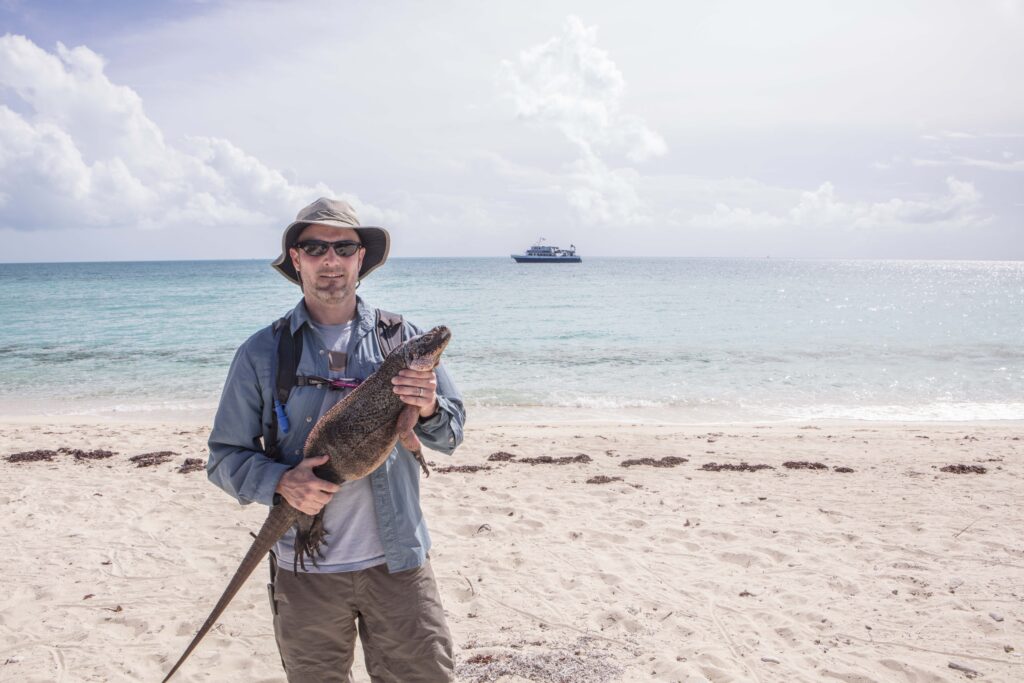
Chuck Knapp, Ph.D., has had a lifelong devotion to the natural world. “It actually started with a fish tank when I was eight years old,” he recalls. “Then I had the opportunity to participate in a marine biology program with Shedd Aquarium on their research vessel based in Miami when I was in high school. As an impressionable teenager, that experience really left a mark on me.”
Today, Knapp oversees Shedd’s conservation research programs including a project to save Bahamian rock iguanas he’s been involved with for 30 years. Shedd Aquarium has been recognized globally for their work in partnership with the Species Survival Commission of the International Union for the Conservation of Nature in protecting wild ecosystems. It is one of only 11 Centers around the world to receive this honor.
“When you’re a field biologist, you’re seeing in real time what is happening to the habitats and animals you’ve grown to love,” Knapp said. “The hardest part is maintaining a positive outlook, but you have to remain hopeful. Otherwise, it would be too heartbreaking to stay in this field.”
Knapp admits that conservation takes time and success isn’t easy to measure. After a decade of research at Andros Island in the Bahamas, his data informed the expansion of a national park. “It took 10 years, but all that hard work from a research perspective and from a networking perspective was a success,” he said.
Recruiting new conservationists is important to Knapp. “I worry that people are losing their connection to nature,” he laments. “During the pandemic nature reserves throughout the country were packed because people wanted to get outside. I would love to see that momentum continue. Get out and enjoy nature. Hopefully that will get more people to care about what is happening.”
The Chouinard Family
Founders, Patagonia
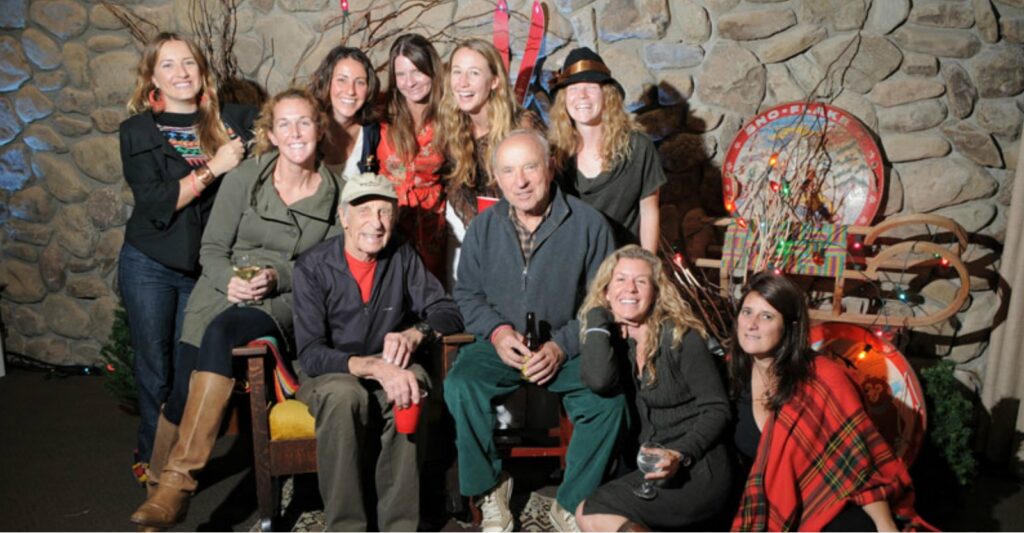
To say Yvon Chouinard is unconventional is an understatement. The 84-year-old founder of Patagonia, one of the most recognizable names in outdoor apparel and gear, took an interest in falconry as a teenager and became a zealous rock climber soon after when he began rappelling down cliffs in search of hawks’ nests. When he realized that his climbing gear was damaging the rock face, he designed and then made his own equipment which he sold out of the back of his car.
Chouinard along with his wife Malinda established Patagonia in 1972, selling apparel inspired by rugby shirts they’d purchased on a trip to the U.K. Since its first day, Patagonia has been committed to sustainability. Recognizing that they had a responsibility to protect the planet, the Chouinards and Craig Mathews, the founder of Blue Ribbon Flies, decided to impose a 1% “earth tax” on their companies’ profits. Today more than 3,900 businesses contribute to 1% for the planet, raising hundreds of millions of dollars that are directed to environmental organizations in 64 countries around the world.
Patagonia became a $1 billion company in 2017, but it never went public. In 2022, the Chouinards and their two adult children, Fletcher and Claire, transferred ownership now valued at $3 billion to a specially designed trust and a nonprofit organization created to preserve the company’s independence and assure that the profits continue to be used to combat climate change. Chouinard was quoted in an exclusive interview to the New York Times saying, “We are going to give away the maximum amount of money to people who are actively working on saving this planet.”
The Patagonia Purpose Trust, about 2% of the family’s shares in the company, was designed to ensure that Patagonia continues to be run as a socially responsible business. The Chouinards have donated the remaining 98% to the recently established nonprofit, Holdfast Collective, essentially making it the new owner. The Chouinards are now considered one of the most charitable families in the country.
Ayana Elizabeth Johnson
Co-Founder Urban Ocean Lab, Co-Founder The All We Can Save Project
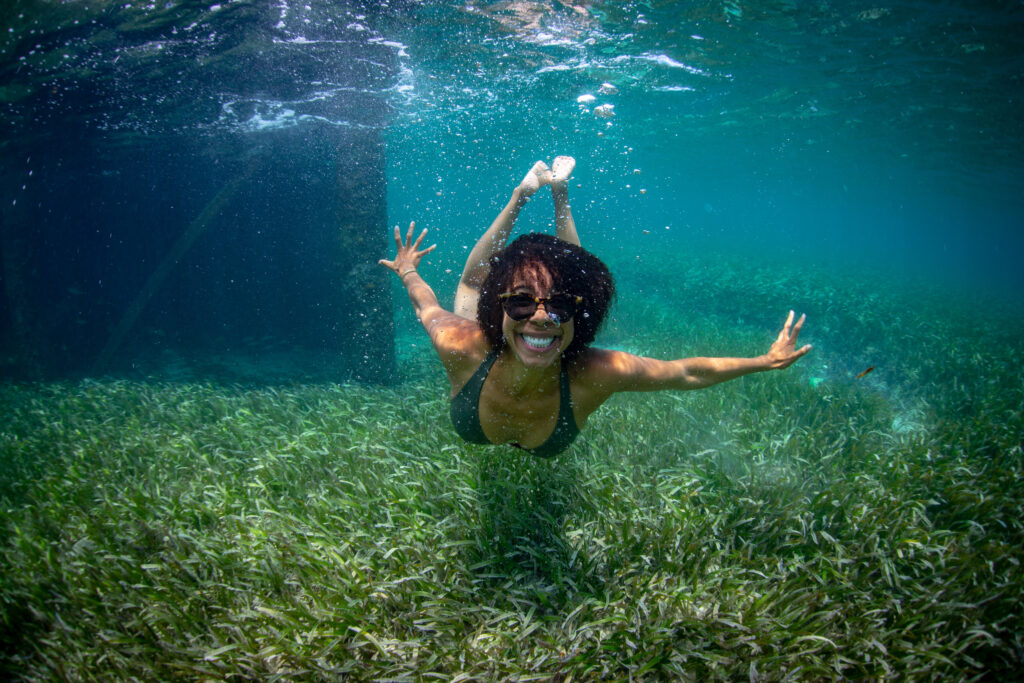
Climate activist Ayana Elizabeth Johnson has seen firsthand the impact of climate change on the planet; yet she remains hopeful. Her latest book, “What If We Get It Right“, offers a vision of the future we can create through community building and creative problem-solving.
Johnson decided to become a marine biologist at the tender age of five. She earned her B.A. in Environmental Science and Public Policy at Harvard and her Ph.D. at Scripps Institution of Oceanography, UCSD. While pursuing her doctorate on the sustainable management of fishing in the Caribbean, Johnson realized that ocean conservation involves more than science. “It’s about people,” she writes. “We need to connect science to policy, to social justice, to art and to culture.”
“Ocean justice” is Johnson’s term for the subcategory of environmental justice that addresses ocean conservation. “There are so many equity and access issues that intersect with ocean conservation. … Which communities are dealing with the most polluted waters and the labor violations of the fishing industry? Who is making the policy decisions that affect coastal communities?”
Responding to these questions has led Johnson to co-found the non-profit think tank Urban Ocean Lab. 60% of the 65 million people living in coastal cities identify as BIPOC and live in historically disadvantaged communities that are often hit first and worst by climate disasters. Urban Ocean Lab cultivates rigorous, creative, equitable and practical climate and ocean policy for the future of coastal cities.
The organization partnered with Azul, Taproot Earth and Center for American Progress to establish the Ocean Justice Forum which is working to create a consensus-based ocean policy agenda that promotes economic, racial, climate and environmental justice. Because qualified, informed leaders are needed to enact policy, Johnson also co-founded the All We Can Save Project with the mission to grow and sustain leaders addressing the climate crisis. Johnson was named to the TIME100 NEXT list in 2021.
Emanuel Kuntzelman
Founding Co-Creator, Global Purpose Movement and Purpose Earth
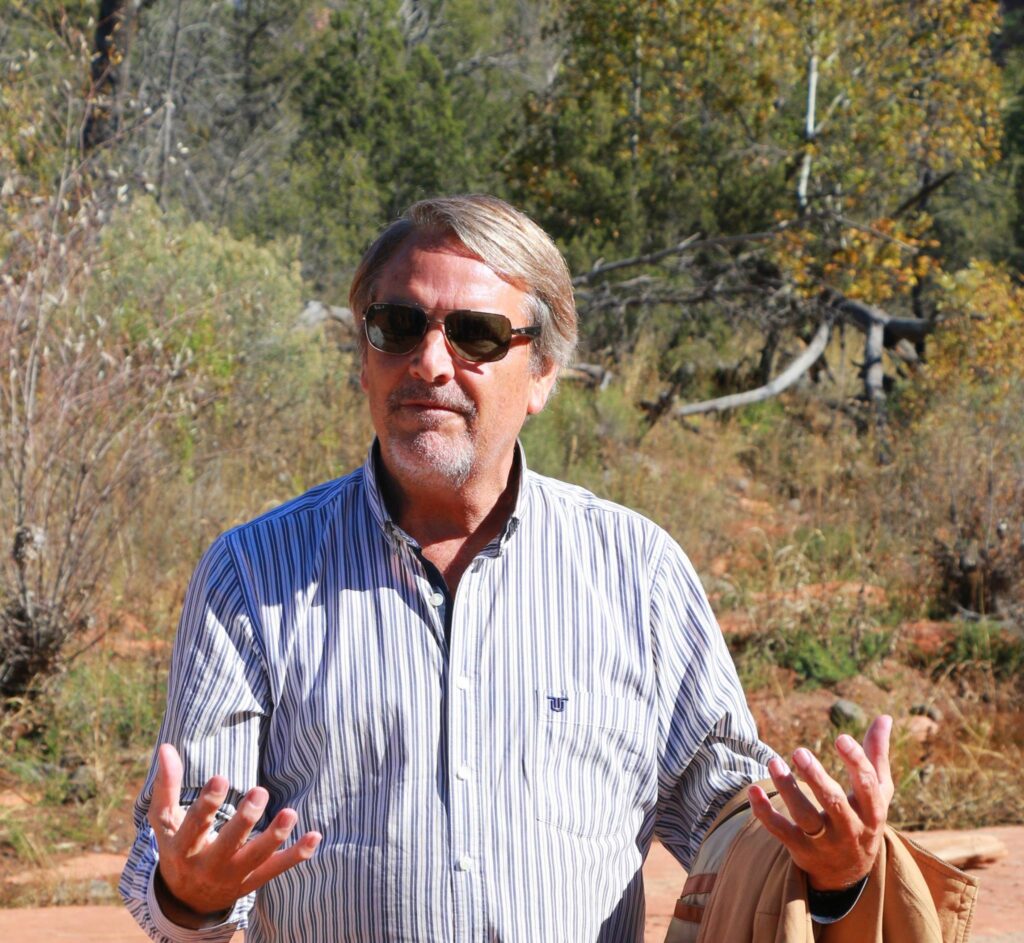
Philosopher, writer, public speaker and social entrepreneur Emanuel Kuntzelman has made it his life’s work to harness the energy of individuals into community to collaborate. “We’re not going to survive as eight billion individuals competing with each other,” he says. “We can resolve all our problems with a sense of cooperation and collaboration.”
Kuntzelman is the founder and president of the Chicago-based nonprofit Greenheart International and co-founder of Fundación por el Futuro (Foundation for the Future), based in Madrid, Spain. He is also founding co-creator of the Global Purpose Movement and Purpose Earth and a member of the Evolutionary Leaders Circle. Today he is striving to answer the question, how are we going to reach enough people in the shortest period of time to motivate them to change their worldview? “The answer is by forming a movement of movements,” Kuntzelman proposes. “Create a philosophy of collective purpose and coordinate people for the better of all.”
It’s called the Holomovement, a philosophy that connects science and spirit for the purpose of serving the global family and changing the world. “We need to find as many approaches as possible to resolving the multiple crises that humanity is facing, particularly the environmental crisis,” Kuntzelman says.
He and co-editor Jill Robinson recently edited an anthology on the topic. Kuntzelman maintains homes in Sedona, Arizona and Madrid, Spain. He sees a marked difference in how the climate crisis is addressed in both countries. “In Europe recycling is a part of the social fabric,” he explains. “The United States is market-based, so unless somebody can make money in recycling nobody does it.”
While he admits to being frustrated by the slowness of addressing climate change, Kuntzelman chooses to remain optimistic. “I try to ignore the hard facts and look to my heart to stay positive about things,” he says. “There’s definitely a widespread, growing base of humanity who really want to resolve this. I have faith in them to self-organize and get the job done.”
Jeff Bezos & Lauren Sanchez
Founders, Bezos Earth Fund
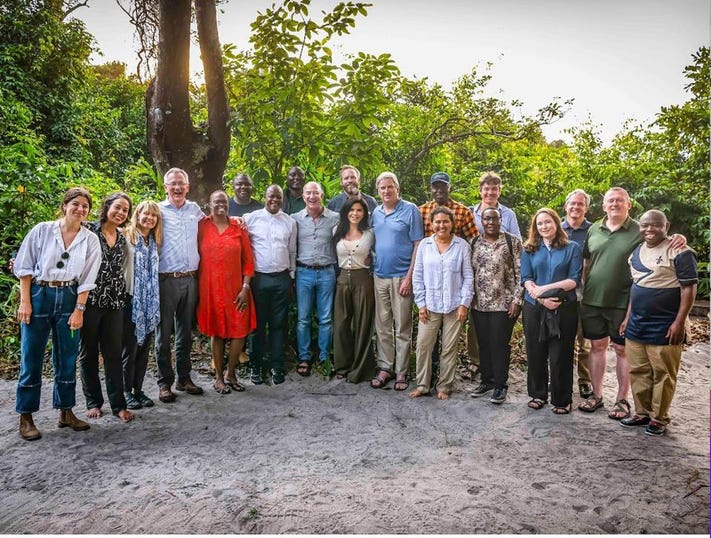
Amazon founder Jeff Bezos ranks as one of the richest men in the world with a net worth of $124 billion. In an interview with CNN Bezos revealed that he plans to give away most of his wealth during his lifetime, devoting it to fighting climate change and unifying people divided socially and politically. He established The Bezos Earth Fund in 2020 to disburse $10 billion over 10 years as grants to organizations combating the climate crisis and driving a nature-positive future. At around 8% of Bezos’s personal fortune, this is the largest philanthropic commitment of its kind.
Bezos who is Executive Chair of the organization explains, “Climate change is the biggest threat to our planet. I want to work alongside others both to amplify known ways and to explore new ways of fighting its devastating impact on this planet we all share.”
To date more than 100 grants totaling $1.63 billion have been awarded to recipients that include The Climate and Clean Energy Equity Fund, ClimateWorks Foundation and World Wildlife Fund.
Bezos is joined on the Board by his partner, Lauren Sanchez who is the vice chair. Following a trip to the West African nation of Gabon last October, Sanchez posted on her social media, “Restoring deforested and degraded land is among the most widely accessible, cost-effective solutions in the fight against climate change. Nowhere does landscape restoration have greater potential than in Africa, where opportunities and needs are the greatest.”
The Bezos Earth Fund is supporting the efforts of Enduring Earth, a collaboration of The Nature Conservancy, The Pew Charitable Trusts, World Wildlife Fund and ZOMALAB, the family office of Ben and Lucy Ana Walton with a grant of $30 million to help Gabon protect its forest and freshwater systems.
In addition to establishing The Bezos Earth Fund, Bezos led Amazon to partner with Global Optimism to co-found The Cimate Pledge in 2019, a commitment for companies to achieve net-zero carbon by 2040. More than 400 companies in 35 countries have already signed the pledge.
Byron Allen
Founder, Chairman and CEO, Allen Media Group
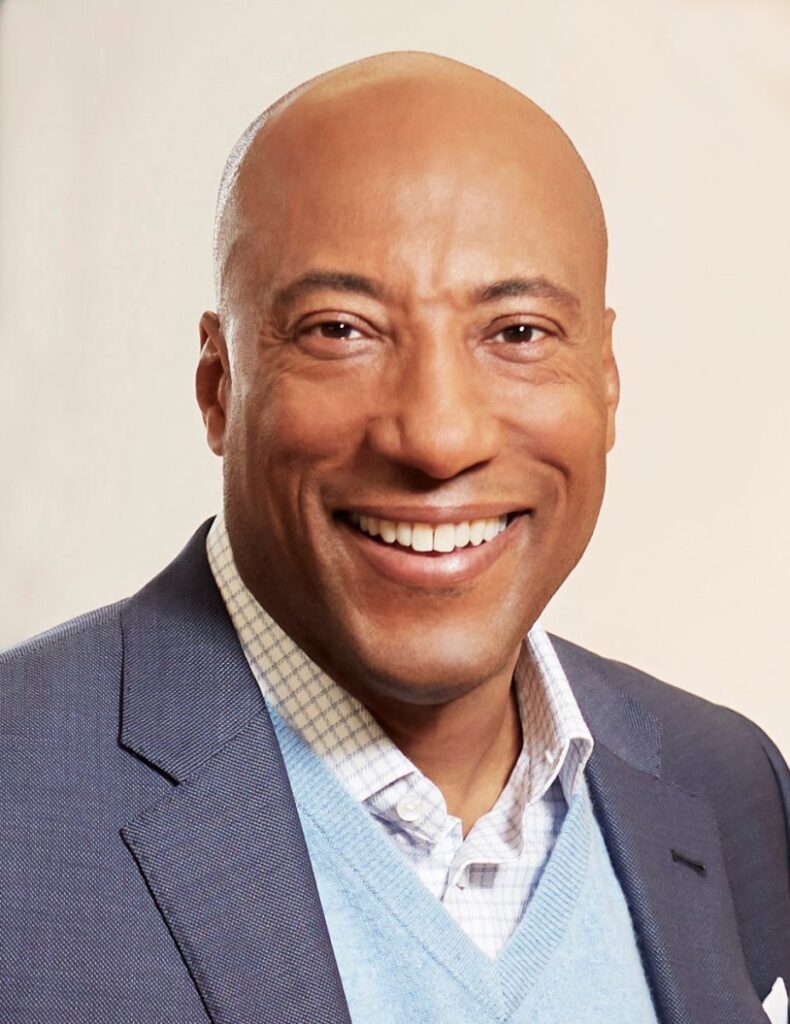
Byron Allen has been building a media empire since 1993, but his decision to purchase The Weather Channel in 2018 was not just about adding assets. It was to provide a platform to inform the public about the dangers of climate change. “People don’t truly understand that climate change and global warming are the greatest threats to human beings on planet Earth,” he explains.
Prior to his takeover, The Weather Channel did not address climate change, but Allen insisted that commentators speak openly about the effects of the crisis, “We have to inform folks so we can help save their lives.”
Allen began his show business career at 18 as the youngest stand-up comedian to appear on The Johnny Carson Show. He now uses his wit to discuss the very serious subject of the climate. In an interview on The Grio — another Allen Media Group website and TV network that focuses on the African American community — he said, “[Climate change] is a threat to all of us. Just ask the dinosaurs. Mother Nature is not messing around. Mother Nature will wipe us out.”
He turns more serious when he describes the devastating effects the world may face, “You have to pay attention to the climate. We need to stop and have a real conversation about it. We’ve got to clean this planet up or the planet will flush us out and start over and heal itself.”
Allen Media Group recently launched a new television series — Allen’s 70th — called FAST: HOME RESCUE that addresses the impact of climate disasters on families. The one-hour show follows the efforts of the disaster-relief agency Reach Out Worldwide (ROWW) — founded by the late actor Paul Walker — to assist families recovering from natural disasters. Walker’s brother, Cody, is the CEO and along with his wife, Felicia, hosts the show which Allen calls transformative. “This show reveals the destructive nature of tornadoes, fires and floods while highlighting the powerful recovery stories of each family.”
Jack and Laura Dangermond
Philanthropists
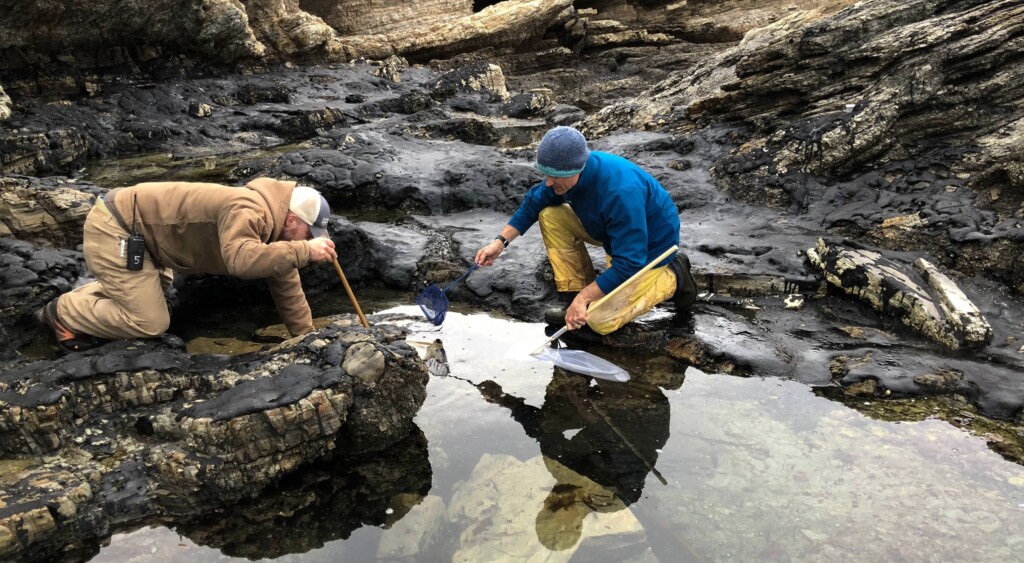
Back in the 1960s, Jack and Laura Dangermond spent their honeymoon camping along the Pacific Coast Highway in Southern California. The couple fell in love with the area and more than 50 years later donated $165 million to The Nature Conservancy (TNC) to enable them to purchase 24,000 acres at Point Conception, Santa Barbara and protect it from development. It’s the largest gift TNC has ever received. “We have great memories of the beach,” Laura recalled in a document produced for Australian television. “It was a place we both fell in love with. It’s just spectacular.”
The Jack and Laura Dangermond Preserve, the last wild expanse of California coastline, is a living laboratory for scientific research and environmental education. For the Dangermonds, founders of Esri — a leading geographic information systems technology company — the goal was to create a gold star nature preserve that could facilitate conservation technology sharing worldwide.
In 2016 when the Dangermonds signed The Giving Pledge committing to give away the majority of their $7 billion wealth Jack stated, “Laura and I created Esri with the idea of using computer mapping and spatial analysis to address a broad range of geographic problem solving. Our vision was to improve the world by creating and providing technology that would help organizations better understand our environment and make better decisions.”
Esri technology is currently being used at Dangermond Preserve to gather data about its archaeology, wildlife and vegetation. Jack explained in a TED Talk that in the geospatial field technologies are allowing measurement and analysis of what’s occurring around the world. “Sustainability requires that we see the world as one system,” he continued. “We’re bringing together geographic information from many sources, virtually describing everything that is occurring on our planet. … A sustainable future, in my mind, is possible, but we’re going to have to do many things and we’re going to have to do these now.”
The Dangermonds believe it will take a collaborative effort between science and business to address climate concerns. “We have the tools and the science for better understanding,” Jack says. “Now that we can see as much as we can see, we must act.”
More From Better:
Every year, Better recognizing the top eco-warriors fighting for our planet. Our past honorees continue to do important work year after year. See our 2021 and 2022 lists and read our coverage and get advice from other top eco-warriors like Sylvia Earle and Paul Nicklen, Cristina Mittermeier, Bill Kurtis and Donna LaPietra.
- Jane Goodall Shares 3 Reasons She’s Optimistic About the Future of the Environment
- 10 of Chicago’s Top Family-Owned Businesses — 2023
- Fight Climate Change With Your Investments? These Experts Show Us How
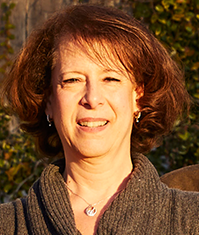
Susan Yem is an internationally published writer who likes telling other people’s stories. She enjoys writing about parenting, education, and how individuals achieve greatness in their chosen endeavors.
